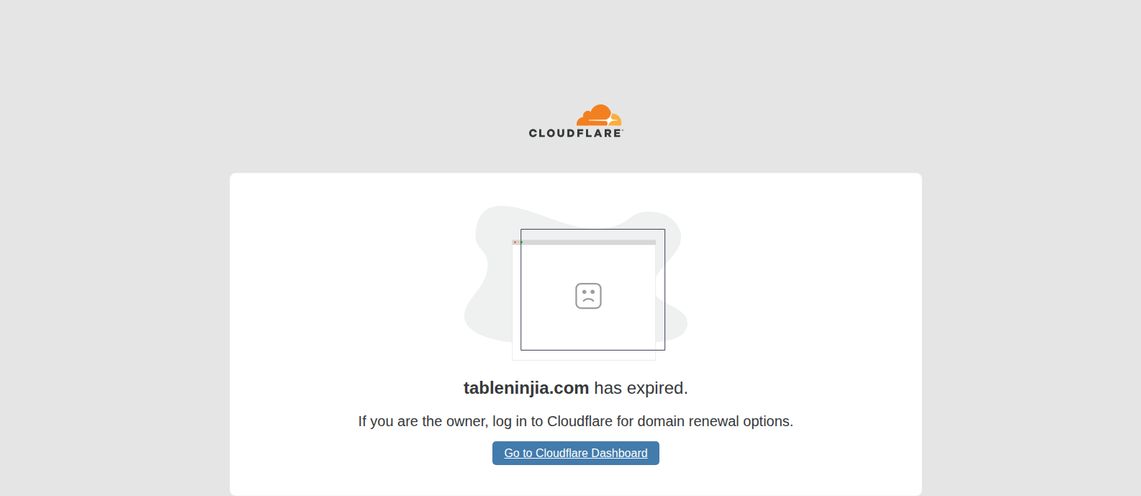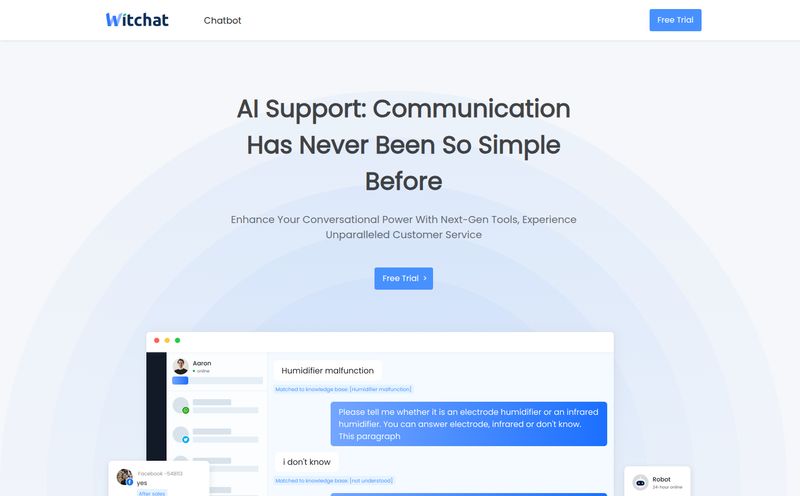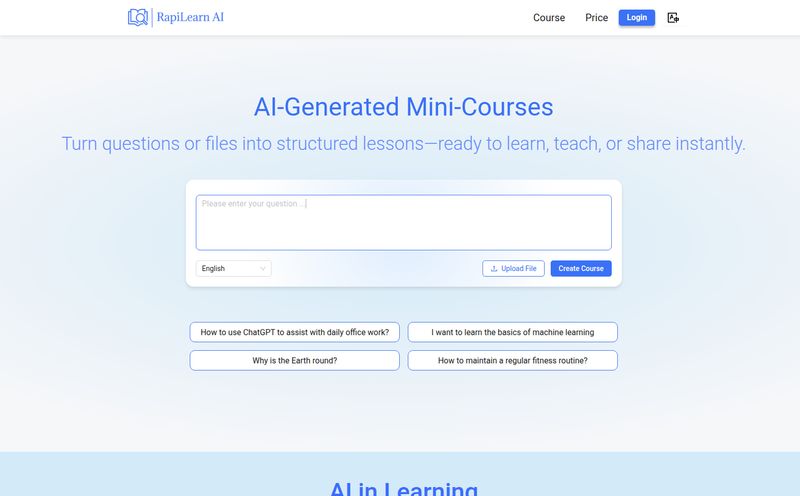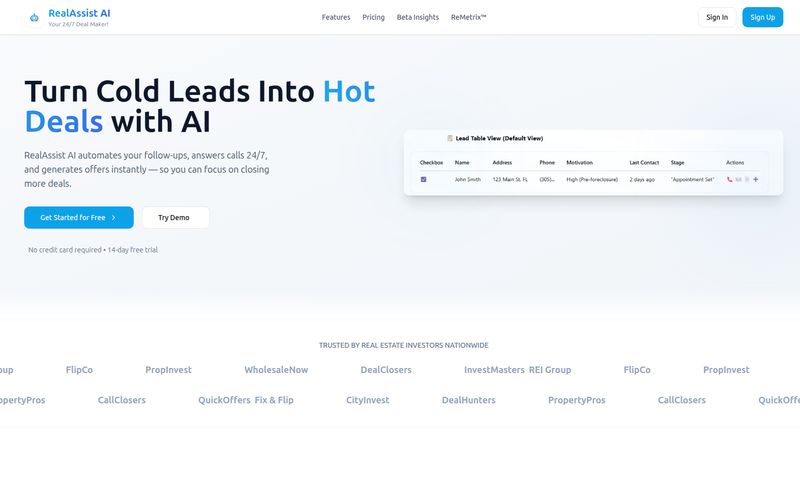The AI world right now feels a lot like the Wild West. Every other week there’s a new tool that promises to revolutionize how you write emails or generate images of cats in space. It's a chaotic, exciting, and frankly, a slightly overwhelming gold rush. Most of these tools are pretty neat, but they're often just a thin layer on top of a big language model. They're applications, not infrastructure.
And then you stumble upon something like Abacus.AI. It feels… different. Weightier. Their whole pitch isn’t just about using AI, it's about giving you the workshop and the raw materials to build your own AI systems directly into the fabric of your business. Their homepage makes a pretty bold statement: “Automate entire enterprises with AI building AI.”
That’s a big claim. As someone who’s been navigating the SEO and tech traffic world for years, I've learned to be skeptical of big claims. So, naturally, I had to take a closer look. Is this just marketing fluff, or is Abacus.AI genuinely offering the keys to the AI kingdom?
So, What Exactly is Abacus.AI?
Think of it this way. Most AI tools are like buying a pre-built car. You can pick the color and maybe add some floor mats, but you can’t change the engine. Abacus.AI is more like getting a high-end garage stocked with every engine part, chassis, and computer chip you could possibly need. It's a platform for building the car yourself.
In their own words, they provide an “AI Engineer” to build applied AI systems. This isn’t for generating a quick blog post outline. This is for creating sophisticated systems for things like sales forecasting, real-time product personalization, and complex, multi-step AI agents that can actually perform tasks across your company's software stack. It’s designed to be embedded, to become a core part of your operations.
They seem to understand that not everyone needs a full-blown factory, so they split their offering. There's ChatLLM Teams for individuals and smaller groups, and then there's the main event: Abacus.AI Enterprise, the full end-to-end platform. One is a powerful tool; the other is a whole toolkit.

Visit Abacus.AI
The Core Engine: Meet DeepAgent and its Capabilities
The centerpiece of the Abacus.AI platform appears to be something they call DeepAgent. They call it a “General Purpose AI Agent That Can Perform Any Task.” Again, big words. But the examples they give start to paint a compelling picture.
We’re talking about an agent that can:
- Create entire documents and presentations.
- Vibe code apps and build interactive dashboards (yes, “vibe code” is their term, and I kind of love it).
- Connect to all your company data to create truly knowledgeable AI chatbots.
- Automate complex agentic workflows.
I’ve seen a lot of AI tools, but one that can genuinely code a small app and then create the PowerPoint deck to get funding for it? That gets my attention. It suggests a system that understands context across different domains, which is a huge step up from single-task bots.
Peeking Under the Hood: Key Features That Matter to Geeks Like Me
An impressive user interface is one thing, but for a platform like this, the real magic is in the plumbing. And the list of capabilities on their site is a dream for anyone who actually wants to build robust systems.
More Than Just a Pretty Interface
This is where Abacus.AI really separates itself from simpler tools. We're talking about serious, enterprise-grade architecture. They explicitly mention things like Vector Stores, RAG (Retrieval-Augmented Generation) Orchestration, and the ability to Fine-Tune your own LLMs. Why does this matter? Because it’s the difference between a novelty and a mission-critical system. Fine-tuning means you can train a model on your proprietary data for unparalleled accuracy. RAG ensures your AI isn't just making things up but is grounding its answers in your actual documents. It’s about control, security, and performance.
Connecting All the Dots
Their diagram of an “AI Brain For Your Organization” is probably the best summary of their value proposition. It shows the platform plugging directly into data sources we all use daily: Slack, Jira, Salesforce, Google Drive, and other databases. This is teh circulatory system of the whole operation. An AI is only as smart as the data it can access. Giving it read-only keys to these systems is like giving a new super-intelligent employee a full tour of the office and access to the company archives on their first day. They can start doing useful work immediately because they have context.
Who is Abacus.AI Actually For?
This is the critical question. Despite having a plan for “Individuals and Small Teams,” I get the strong sense that the heart and soul of Abacus.AI is built for the enterprise. The language, the feature set, the emphasis on security and custom models—it all points to larger organizations with complex problems and, crucially, technical teams to solve them.
One of the potential downsides listed in my research was that it “may require technical expertise to fully utilize the platform.” I don't see this as a downside, really. It’s a clarification. A Formula 1 car requires a skilled driver; that's not a flaw in the car. This platform isn't for the marketing manager who wants to automate a few social media posts. It's for the data science team building a predictive model for customer churn, or the engineering lead tasked with creating a truly helpful, internal support bot that can actually resolve tickets instead of just pointing to FAQ articles.
The Good, The Bad, and The Complicated
So, let's break it down. No tool is perfect, right?
On the plus side, the biggest advantage is that it’s an all-in-one platform. In my experience, one of the biggest pains in operationalizing AI is the duct tape. You’re trying to chain together a service for data ingestion, another for vector storage, an API from OpenAI or Anthropic, and a fourth for monitoring. It’s fragile and expensive. Abacus.AI seems to bring all of that under one roof. The access to cutting-edge models and the ability to create truly custom solutions are massive selling points.
On the other hand, we have to talk about complexity. This is a double-edged sword. All that power and customizability creates a steep learning curve. Setting up a complex AI agent that correctly interacts with three different APIs and a private database isn't a point-and-click affair. It's going to require planning and expertise.
The Million-Dollar Question: What Does Abacus.AI Cost?
Ah, the question on every CFO’s mind. As a blogger, one of my first instincts is always to find the pricing page. It tells you so much about who a company is targeting. So I went looking for it. And I hit… a 404 error page. A very stylish, neon 404 page, but a dead end nonetheless.
And you know what? That’s the most honest pricing page of all. For high-end, enterprise-grade software like this, a public pricing page is rare. The cost is almost always a conversation, not a number on a website. It means the price is “it depends.” It depends on your scale, your usage, the specific models you need, the level of support, and a dozen other factors. You have to book that “Free Expert Consultation” to find out.
This confirms my suspicion. While the “ChatLLM Teams” tier might be accessible, the full enterprise platform is likely a significant investment, one that could be a “barrier for small teams,” just as the initial notes suggested.
My Final Take: Is Abacus.AI Worth the Hype?
After digging in, I’m genuinely impressed. Abacus.AI isn’t a magic wand that solves all your problems with a sprinkle of AI dust. It's a professional-grade power tool for companies that are serious about building artificial intelligence into their core business.
If you're a large organization with a data science team, struggling to manage a fragmented mess of AI experiments, this platform could be the unified solution you've been looking for. It offers the governance, security, and power to move from tinkering to deploying real, value-generating AI systems.
If you're a small business or a solopreneur, it’s probably overkill, unless your entire business is an AI-powered application. For most, there are simpler, more focused tools that will get the job done.
The “AI Engineer” metaphor is a good one. You wouldn't hire a full-time, PhD-level engineer to just answer emails. You hire them to build things. That’s what Abacus.AI is for. It’s for building.
Frequently Asked Questions about Abacus.AI
- What is Abacus.AI used for?
- It's used for building and embedding custom AI solutions—like advanced chatbots, AI agents, forecasting models, and personalization engines—directly into a company's applications and workflows.
- Is Abacus.AI suitable for beginners?
- Not really. While they have a tier for smaller teams that's more accessible, the full power of the enterprise platform is designed for users with technical expertise, like developers and data scientists.
- Can I use my own data with Abacus.AI?
- Absolutely. One of its main features is its ability to connect securely to your own business data sources, such as Salesforce, Jira, Snowflake, and Google Drive, to create a custom AI that understands your specific business context.
- How does Abacus.AI handle security?
- The enterprise platform heavily emphasizes enterprise-grade security, data privacy, and permissioning. This ensures your custom AI models and agents only access the data they are explicitly allowed to, which is critical for any business.
- Is Abacus.AI just another ChatGPT wrapper?
- No, it's far more than that. It’s a complete, end-to-end MLOps and AI platform for building, deploying, monitoring, and retraining complex AI systems. It gives you the tools to fine-tune your own models, not just use someone else's.
The AI space is incredibly noisy, but Abacus.AI seems to be one of the players making a clear, strong signal. They’re not focused on the latest gimmick; they’re focused on providing the industrial-strength infrastructure needed for the next generation of business. For the right company, this could be less of a tool and more of a transformation.



